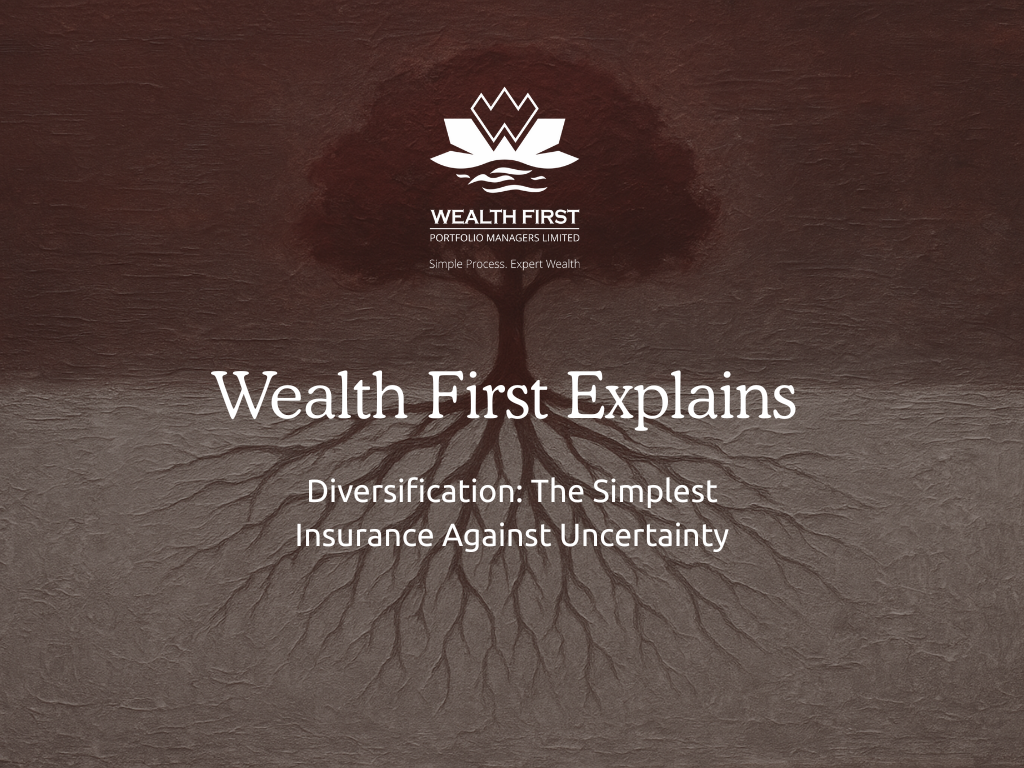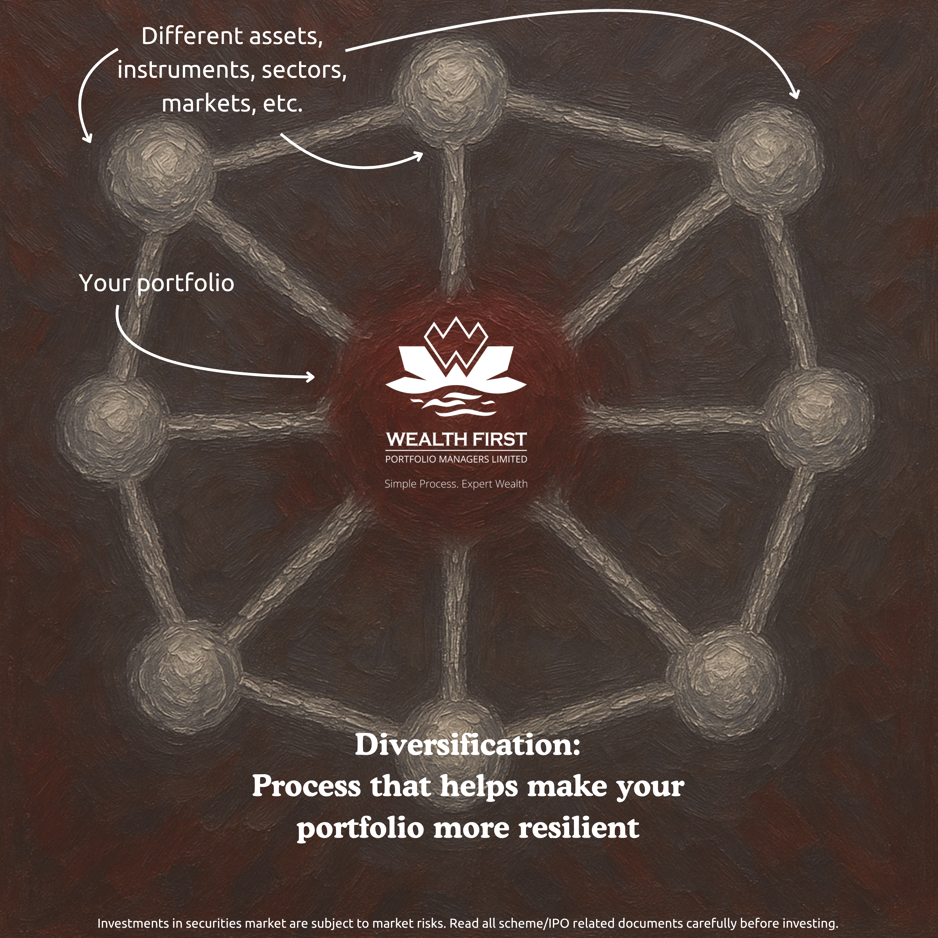
Wealth First explains why spreading your investments is the most practical shield against market unpredictability.
In our previous discussion, we explored how insurance protects wealth from life’s unexpected events.
But what about the uncertainties you can’t predict or control like sudden market movements, global crises, or changing economic cycles?
That’s where diversification becomes your next line of defence.
What Is Diversification?
Diversification means spreading your investments across different assets, sectors, and markets so that no single event can drastically impact your overall wealth.
It’s often called the only free lunch in investing because it reduces risk without necessarily reducing potential returns.
Why Diversification Matters
Even the most carefully planned portfolio—perfectly aligned with your risk tolerance and asset allocation—can still be vulnerable if it lacks diversification.
When you diversify, you make your portfolio more resilient, because when one investment underperforms, another may outperform, balancing the overall impact.
It’s a way to prepare not only for what you expect, but also for what you can’t foresee.

Types of Diversification
1. Across Asset Classes
Investing in a mix of equities, debt, gold, real estate, and alternative assets helps balance risk and reward.
- Equities drive growth.
- Debt provides stability.
- Gold hedges against inflation and currency risk.
- Real estate and alternatives offer diversification beyond markets.
2. Within Asset Classes
Even within one category, diversification is valuable.
- In equities, one should spread across large-, mid-, and small-cap stocks, and across sectors (IT, FMCG, banking, etc.).
- In debt, one should choose a mix of short- and long-duration instruments or credit qualities.
3. Geographic Diversification
Different economies perform differently. Diversifying across domestic and international markets can protect you when one region slows down.
4. Product Diversification
Balancing between mutual funds, ETFs, PMS, bonds, or direct equities can help fine-tune liquidity, flexibility, and tax efficiency.
The Power of True Diversification
Let’s look at three investors; each disciplined, but with different approaches:
- Aditya has perfect asset allocation, but limited diversification. He has invested 70% in equities; but only in one sector, say technology. When that sector corrects, his portfolio dips heavily.
- Bhaskar has assessed risk tolerance well but invests only in Indian markets. A global event causes domestic markets to fall, and his entire portfolio is affected.
- Surya combines asset allocation, risk tolerance, and diversification. He holds a balanced mix across sectors, geographies, and products. When one part of the portfolio dips, others cushion the fall.
Over time, Surya doesn’t just protect wealth but also grows it more steadily.
Diversification, Asset Allocation & Risk Tolerance: The Trio of Stability
- Risk tolerance defines how much risk you can handle.
- Asset allocation decides where your money should go.
- Diversification ensures that each of those buckets remains balanced and shockproof.
Together, they make your portfolio resilient, adaptable, and future-ready—no matter what the markets bring.
Key Takeaways
- Diversification reduces impact from unpredictable events.
- Spread across asset classes, sectors, geographies, and products.
- Combine it with risk tolerance and asset allocation for holistic strength.
- True diversification doesn’t eliminate risk—but it prevents one event from derailing your progress.
Disclaimer
The content shared by Wealth First is for general informational and educational purposes only and should not be considered as investment advice, research, or a solicitation to buy or sell any financial product. All information in emails, posts, and articles from Wealth First is intended solely to increase financial awareness. Past performance is not indicative of future results. All investments are subject to market risks, including possible loss of principal. Readers should consult their financial, legal, or tax advisors before making any investment decisions tailored to their personal circumstances. While utmost care is taken to ensure accuracy of information, Wealth First does not guarantee completeness, reliability, or timeliness, and shall not be liable for any direct or indirect loss arising from reliance on such information.
